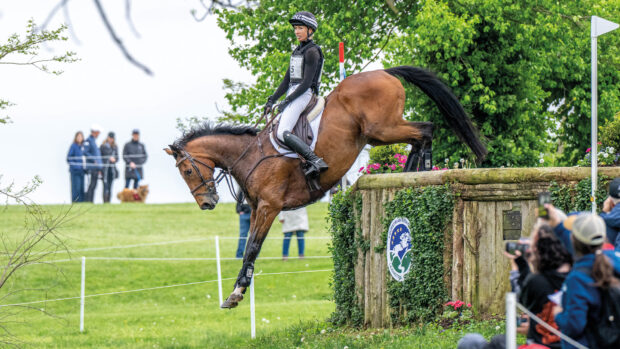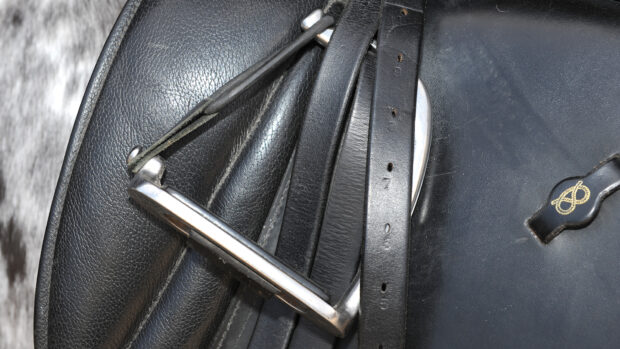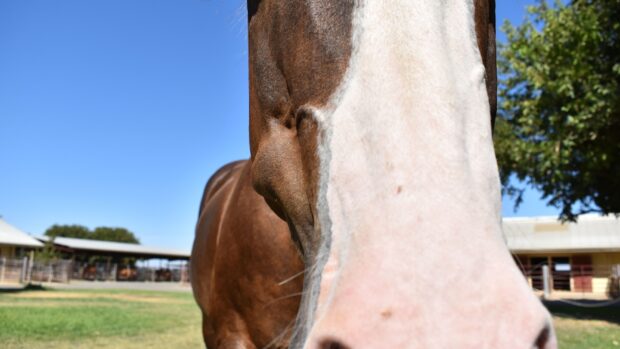US animal welfare organisations have welcomed a report on soring that “underscores the urgent need to eliminate the current self-policing in the Tennessee walking horse industry”.
The Humane Society of the United States and the Humane Society Legislative Fund have responded to the National Academies of Sciences, Engineering and Medicine’s report.
The report states that “to detect soreness in Tennessee walking horses, only veterinarians should administer inspections at shows”.
It adds: “Inspections should follow proper technique and employ sufficient observation of horse movement, palpation of limbs to detect local pain and inflammation, thermography, and swabbing to detect inflammation or prohibited substances. Physical exams should take into account current understanding of how horses experience and present pain.”
The report evaluated different methods used to detect soring, the practice of injuring the hooves and legs of Tennessee walking and other horses to produce the high-stepping “big lick” gait.
It found that differences in training and experience account for discrepancies between inspections carried out by Animal and Plant Health Inspection Service (APHIS) vets and designated qualified persons (DQPs), mainly non-vets licensed by the industry organisations that host shows.
The report recommends that only vets should carry out inspections, adding: “If budget constraints necessitate the use of third-party inspectors, they should be trained by APHIS, evaluated, and screened for conflicts of interest.”
The report also recommends information and methods that inspectors should learn in their training.
The report was made following a thorough study carried out by vets and other experts in animal health and behaviour.
Humane Society Legislative Fund president Sara Amundson, and Kitty Block, president and CEO of the Humane Society of the US, made a joint statement in response to the report.
“The recommendations on methods of detecting horse soring underscore the need to eliminate the failed system of industry self-policing that has enabled this cruel abuse for decades,” the statement said.
“Though some in the Tennessee walking horse industry hoped that the study would enable them to continue their abuse, the National Academies have delivered a thorough report that recognises palpation as the gold standard for detection of soreness, embraces an enhanced rule on scarring and offers other constructive proposals designed to achieve more robust enforcement of the Horse Protection Act.
Continues below…

Trump stops rule to save Tennessee walking horses from soring
'Bureaucratic bungling' has meant the rule change has been put on hold by the White House

Tennessee walking horse owner hopes to expose horrific soring practices in feature film
‘I think if we can tell this story, we could create national outcry, and force the Senate into action’

Subscribe to Horse & Hound magazine today – and enjoy unlimited website access all year round
“Last year, we fought off attempts to enact an 11th-hour proposal floated by the sorers and a group they teamed up with, which would have blocked these recommendations and other vital reforms provided for in the US Department of Agriculture’s 2017 anti-soring rule that we’re urging the Biden administration to swiftly reinstate.
“The Prevent All Soring Tactics Act, which an overwhelming bipartisan majority of members of the House of Representatives approved in the last Congress, goes even further to protect horses, and we’ll be championing its passage in the 117th Congress.”
The report adds that the decision to disqualify a horse from a show should be driven by an experienced vet, and made based on the diagnosis of local pain. It should also include thorough assessment of the horse’s movement and other behavioural signs such as weight-shifting.
It recommends that thermography be used to help detect inflammation, and that swabbing to detect prohibited substances such as topical pain relievers be carried out randomly and to suspect horses. The report also recommends that “serious consideration” be given to blood testing, which is used in other equestrian competition to detect medications that could alter the horse’s response to pain.
Horse & Hound magazine, out every Thursday, is packed with all the latest news and reports, as well as interviews, specials, nostalgia, vet and training advice. Find how you can enjoy the magazine delivered to your door every week, plus options to upgrade to access our H&H Plus online service which brings you breaking news as it happens as well as other benefits.




